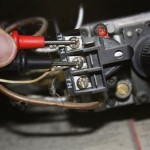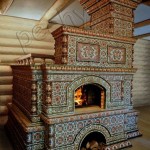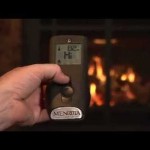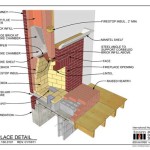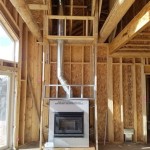Gas Fireplace Vent Pipe Clearance: Ensuring Safety and Efficiency
Gas fireplaces provide warmth, ambiance, and a cozy atmosphere, but they also pose potential risks if not installed and maintained correctly. One crucial aspect of safety and efficient operation is vent pipe clearance. Proper vent pipe clearance ensures that combustion byproducts are safely expelled from the house and prevents fire hazards. This article will delve into the specifics of gas fireplace vent pipe clearance, highlighting its importance and offering practical guidance.
Understanding Vent Pipe Clearance Requirements
Vent pipe clearance refers to the minimum distance that must be maintained between the vent pipe and combustible materials, such as wood framing, insulation, or drywall. These clearances are established by national building codes and manufacturers' instructions, ensuring a safe distance to prevent overheating and fires. The specific clearance requirements vary depending on the type of vent pipe material, its diameter, and the surrounding environment. For example, a double-wall vent pipe will typically require less clearance than a single-wall pipe.
Key Points of Gas Fireplace Vent Pipe Clearance
Gas fireplace vent pipe clearance is critical for several reasons:
1. Preventing Fire Hazards
The primary purpose of vent pipe clearance is to prevent fires. When hot exhaust gases travel through the vent pipe, they can generate significant heat. If the vent pipe is too close to combustible materials, the heat can ignite them, leading to a fire. Maintaining proper clearance ensures that the heat generated by the vent pipe is dissipated safely and does not pose a fire risk.
2. Ensuring Efficient Combustion
Vent pipe clearance also affects the efficiency of combustion. If the vent pipe is obstructed or too close to combustible materials, it can restrict the airflow and hinder the proper expulsion of combustion gases. This can lead to incomplete combustion, resulting in lower heat output and the buildup of harmful carbon monoxide.
3. Preventing Moisture and Condensation
Proper vent pipe clearance helps prevent the buildup of moisture and condensation. When hot exhaust gases travel through the vent pipe, they cool and condense, forming moisture. If the vent pipe is not adequately insulated or if there is insufficient clearance, this moisture can accumulate and cause damage to the surrounding materials.
Measuring and Maintaining Vent Pipe Clearance
To ensure proper gas fireplace vent pipe clearance, homeowners should consult the manufacturer's instructions and local building codes. Measuring the clearance is essential, and it should be done with a tape measure or a laser distance meter. The clearance should be measured from the exterior surface of the vent pipe to the nearest combustible material. If the measured clearance falls short of the required minimum, adjustments should be made to the vent pipe installation.
Conclusion
Ensuring proper gas fireplace vent pipe clearance is crucial for safety and efficiency. By understanding the specific clearance requirements and diligently measuring and maintaining the clearance, homeowners can create a safe and comfortable environment for their families.
Venting
Gas Fireplace Venting Explained Heat Glo
Gas Fireplace Venting Explained Heat Glo

Gas Fireplace Flue Exterior Inspections Internachi Forum

Gas Meter Clearances

Kingsman Hbzdv3624 Zero Clearance Direct Vent Gas Fireplace 36 Woodland
Venting

Furnace Vent Clearance To Wood Or Combustible Materials Can Be A Fire Safety Concern If Too Close Buyers Ask

Kingsman 47 Inch Hb4736 Zero Clearance Direct Vent Gas Fireplace 7 Day Millivolt

Min Vert Distance From W H Exhaust And Operable Window Inspecting Hvac Systems Internachi Forum
Related Posts

